Tackling a silent killer: Australia’s loneliness epidemic
Martin Blake’s mother died a very lonely woman and now, after 30 years at the top of KPMG, he has forged a movement to confront a crisis that costs the economy $3bn each year.
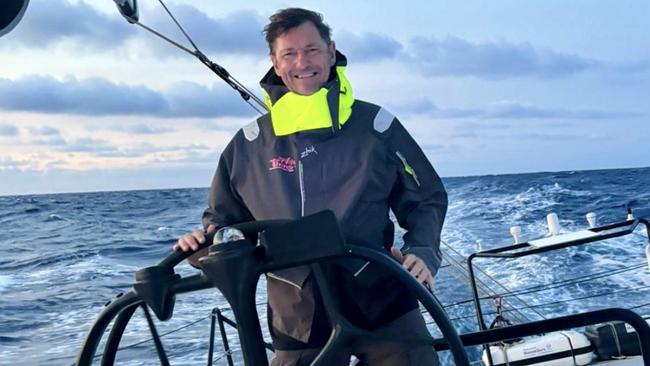
Marlow is a picturesque town on the River Thames, some 50km west of central London.
For 40 years, a magnificent home just outside the town – boasting lake views and abundant birdlife and built on the site of a 600-year-old flour mill – was owned by a couple named Bill and Lorna Blake.
Their eldest son Martin is today famed in the accounting profession for his esteemed 28 year career with KPMG, including eight years as chairman of its NSW practice in Australia from 2012 to 2019.
Bill Blake was a captain for British Airways and then Singapore Airlines, who for many years moved between homes in the UK, Hong Kong, Singapore and Sydney. But in 2010, at the age of 74, he was diagnosed with bowel cancer. He died two years later.
His wife never recovered from the loss. In 2017, her 55-year-old daughter – Martin’s sister Susan, who he was very close to – also died suddenly after a shock breast cancer diagnosis. Tragically, Susan was estranged from her mother, who found out about her daughter’s condition only two days before she died.
“So the burden of looking after my mother was very much on me, which was difficult to do from 19,000km away,” Blake recalls, noting he would make frequent trips from Sydney to Europe for work when he would tack on visits to Marlow.
He would often get calls during the evening in Sydney when there was an issue with his mother back in his homeland.
“But one time when I went back in January, she fell down twice during that week. I told her ‘Look, I’m just too far away, we’ve got to put you in a home for your own safety.’ But unfortunately, that was the beginning of the end.”
Lorna suffered bipolar episodes and was even sectioned for a year in hospital to manage her mental health condition.
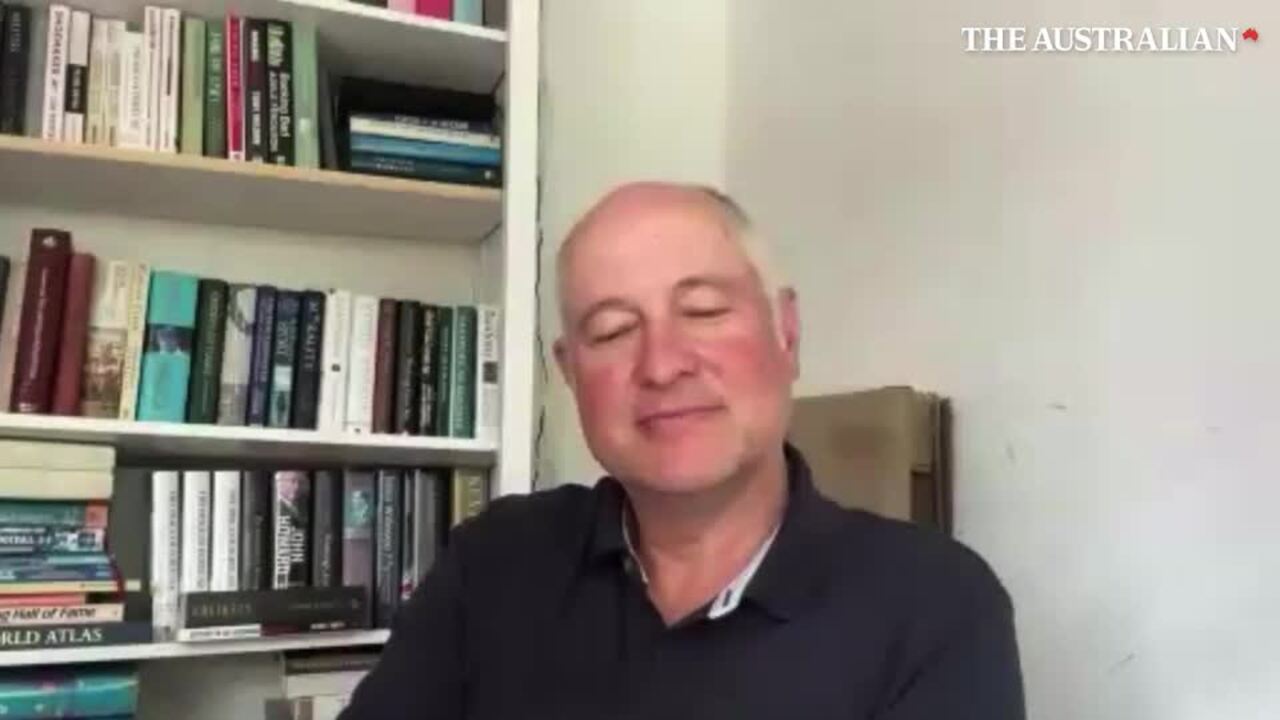
Then during the Covid pandemic, when the virus tragically tore through her nursing home in the UK market town of High Wycombe, she became critically ill and was transferred to a nearby NHS hospital.
“We said goodbye to her over FaceTime, which broke my heart,” her son reveals. “She died desperately lonely without a friend in the world. While absolutely gutted, I promised myself to turn my mum’s experience into a positive movement.”
It inspired Blake to establish the Groundswell Foundation, a charity focused on raising awareness, engaging communities and advocating for policy changes that prioritise early intervention and prevention of loneliness.
Blake last year secured the support of NSW Minister for Mental Health Rose Jackson to set up a NSW Parliamentary Inquiry into the impacts of loneliness. The public hearings have been taking place over the past fortnight.
Blake believes the fight against loneliness starts with awareness, and he is determined that the Groundswell Foundation make a difference in every corner of Australian society.
Despite all the stresses he faced in the decade after losing his father, Blake barely told a soul at KPMG. He only sought therapy after his mother’s death.
“It is very difficult, very lonely. So I definitely reached out to professionals,” he says.
“It was helpful to speak to someone objective that you could pour your heart out to and be very honest with about how you felt. They also did have good strategies to help you tackle that.”
But his passion for the Groundswell Foundation will be forever driven by the pain in the eyes of his twins, Charles and Sienna, during that fateful FaceTime call three years ago.
“They are good kids with good values,” Blake says softly, his voice momentarily breaking, before a poignant pause as he recalls the memory of their final words to their then stricken grandmother, hours before she died.
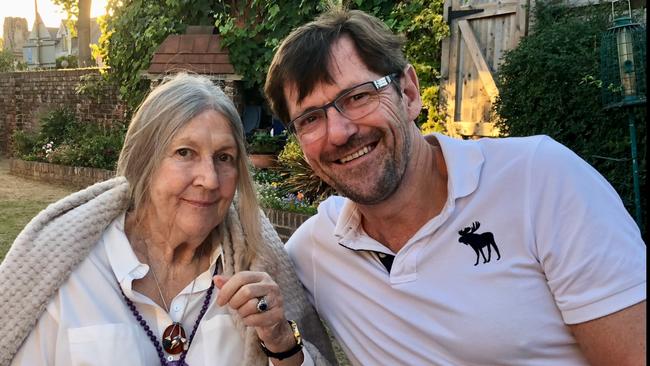
“Our twins were born on the 20th of November, 2004, which was the day, unfortunately, that my wife’s father died,” he adds.
Also by their side that fateful day was Blake’s beloved wife of the past 26 years, Tiki. They met at the Mosman Rowing Club nearly 30 years ago and Blake will be forever thankful for her strength, tenacity and understated support, especially for their children.
“Tiki is from Yorkshire. She is very honest, very real, a wonderful person and an absolute rock for them in their lives,” he says.
“Like her mother, who was Irish, she is completely selfless and puts family, particularly our twins, ahead of everything.”
Blake was born in the district of Chiswick in west London and because of his father’s constant overseas assignments, he was sent to boarding school in Surrey when he was seven years old. He only visited his parents at their various overseas postings during holidays.
He initially aspired to be a fighter pilot, following in the footsteps of both his grandfathers.
But after failing to meet the height requirements, he pivoted to studying economics and worked as an investment banker.
Passion for sailing
He attended Swansea University, which he chose for its proximity to the sea, and worked in the City of London for various banks, including National Westminster Bank.
He had learned to sail in his first year of boarding school while holidaying with his parents during one of their postings to Palm Beach in Sydney.
His childhood memories of Asia and Australia were a world away from the cliquey City of London. “Spending so much time in the Far East, I was aware that the world in London was not reality and I found it quite claustrophobic in a way,” he says.
“The thing about sailing is that when you get on a yacht, it doesn’t matter whether you are a chairman, a candlestick maker, a builder or a brickie, everyone is equal. I love the egalitarianism that comes with that. That really was the thing that I loved about Australia, because at the end of day, if you work hard, keep your nose clean, then you can create a very good life here for yourself and your family.”
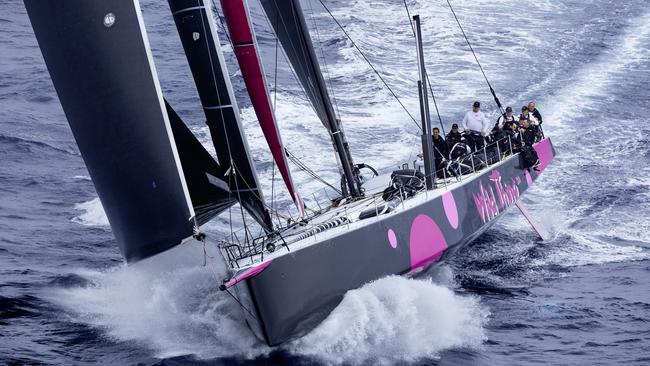
He moved permanently to Sydney in 1989 and started at KPMG in 1995, becoming Australian leader for the firm’s financial services practice for four years and leading the insurance practice for five years. He also established the firm’s global fintech insurance community and was chair of KPMG NSW for eight years.
The move to Australia evolved his passion for sailing supermaxi yachts. Today, the famed Wild Thing 100 is a supporter of the Groundswell Foundation.
Blake has also long lived by his father’s quirky mottos. In addition to his late sister, he also has a brother aged three years younger, who lives in Australia.
“My father was a very smart, understated man. He also had some set ideas, like, for example, never buy a house without a view of the water because it’s a garden you don’t need to weed,” he quips.
“He was also very keen on lifetime sports. These were sports that you could learn when you were young, but you could also do in your 80s. There are five of them: snow skiing, tennis, golf, sailing and swimming. So they are the only sports that I have ever done.”
Blake’s journey from the corporate world to loneliness advocate began during his years at KMPG, when he witnessed first-hand how success and career achievements don’t always protect people from feeling isolated.
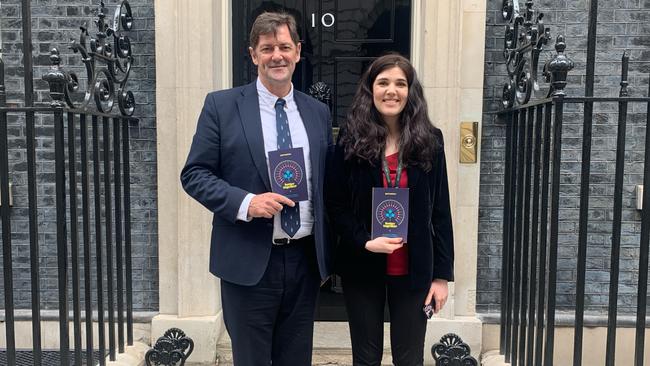
In the UK, Blake says, he was fortunate to connect with Chloe Westley, an Australian who was then the UK prime minister’s adviser for social media & spokesman for mental health. The UK had by then earned a reputation as the most advanced country in the world in tackling loneliness, appointing its first Minister for Loneliness & Connected Communities over a decade ago.
“It was through Chloe that I was able to bring the insights from the game-changing work in the UK to Australia and publish with KPMG Australia the most comprehensive report ever produced on loneliness in Australia called Connections Matter,” he says.
Isolated at the top
The report, released in 2023, found that while connectivity is at a high, loneliness is affecting one in three Australians, especially after the Covid pandemic. It also claimed the impacts of loneliness are equivalent to smoking 15 cigarettes or having six drinks per day, at an annual healthcare cost to the economy of $2.7bn. Tragically, lonely people were found to have a 26 per cent increased risk of death.
Among the most affected by loneliness are business leaders, especially CEOs and directors of large corporations, surrounded by people and yet so isolated.
Blake says the effects of isolation for these corporate leaders are also financial and operational, leading to declines in productivity and wellbeing. He urges CEOs and directors to address not only their own situations, but loneliness in their organisations by having the courage to acknowledge and embrace the issue, to work with staff to implement practical, fit-for-purpose solutions to encourage connectedness.
He believes the key is embedding accountability for the issue by setting up an oversight body to monitor loneliness initiatives, to ensure collaboration across grassroots initiatives and that their impacts are properly measured.
He believes more use can be made of trusted institutions like public libraries to serve as a meeting place for lonely people.
He also wants big business, led by the Business Council of Australia, to drive some initiatives.
“In the Netherlands, for example, they encouraged supermarkets to introduce a slow queue in certain communities, because the only time some old people leave their homes is going to get food,” he says. “I also think reducing the stigma associated with loneliness is very important – having media campaigns to both raise awareness and tackle that stigma of mental weakness.”
Two of Blake’s greatest mentors are former banking executive Mike Pratt, who held senior roles at Standard Chartered Bank and Westpac, and former KPMG Australia CEO Lindsay Maxsted.
As someone who spent nearly 30 years at the top of the local accounting profession, Blake says he has been “shocked” by revelations of regulatory and governance failings that have plagued the big four firms. But he does not feel the least bit tainted personally.
“I had extremely high personal standards. I never did anything that wouldn’t pass a front page test in the newspaper, and obviously I was in the chain of command,” he declares.
“I meticulously managed my brand and interactions and was always honest, truthful, transparent, and I hold my head up high.
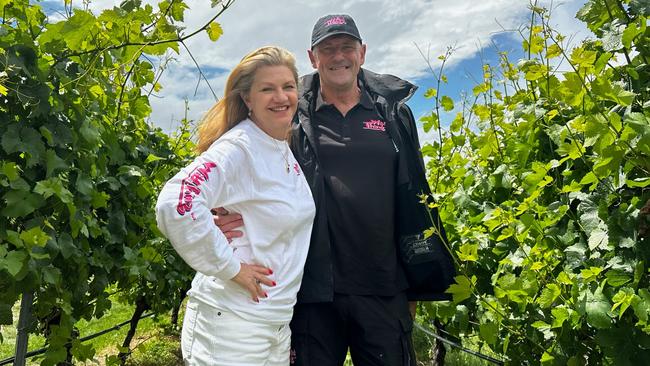
“Those, frankly, are the values which are in all the big four firms, with a few very unfortunate exceptions.”
Blake says he has long coveted his reputation for being understated and out of the media spotlight, so admits to being surprised by the traction already garnered by the Groundswell Foundation, with him at the forefront publicly.
“I didn’t quite realise where this was going to go in terms of being such a profound health and social issue. I think I’ve played a small part in raising awareness in Australia. Others have played very important parts as well. But this is and will impact the lives of many, many people,” he says.
He will always carry the burden of the sad reality that while his mother was wealthy when she died, she was alone and lonely. When Tiki Blake’s mother, Patricia, died at the age of 91 earlier this year, she had no material assets in the world but was surrounded by loving friends and family.
“In many ways she was much wealthier and happier than my mother. She, like her daughter, dedicated her life to helping others and bringing up her children and grandchildren,” her son-in-law says.
Her ashes were laid to rest by the family in June this year at her birth place in Carlingford, a beautiful town on the Irish coast an hour north of Dublin.
“The insight for me is that while we all rush around and are often preoccupied with what material possessions we have, the only things you are remembered for when you are gone is what you have given away and the legacy you created.”




To join the conversation, please log in. Don't have an account? Register
Join the conversation, you are commenting as Logout